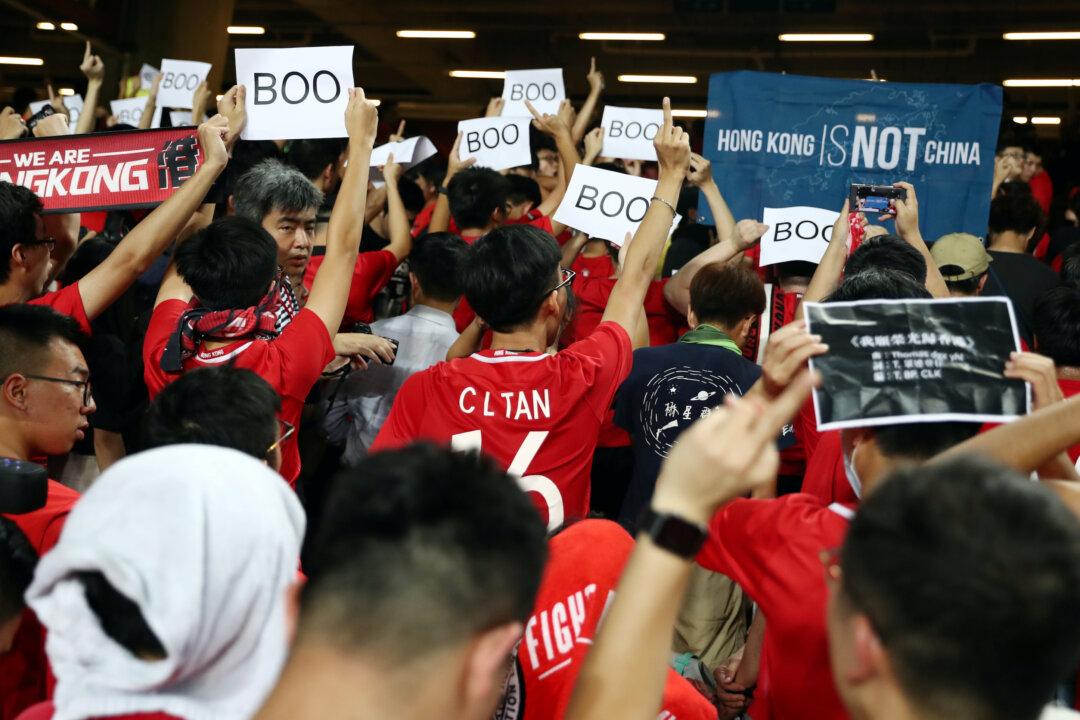HONG KONG—Anti-government protests that have roiled Hong Kong for more than three months spread to the sports field on Sept. 10, as many local fans defied Chinese law to boo the country’s national anthem ahead of a soccer World Cup qualifier against Iran.

Soccer fans demonstrate inside Hong Kong Stadium in support of anti-government protesters as Hong Kong takes on Iran in World Cup qualifiers, in Hong Kong, China on Sept. 10, 2019. Athit Perawongmetha/Reuters
|Updated:




